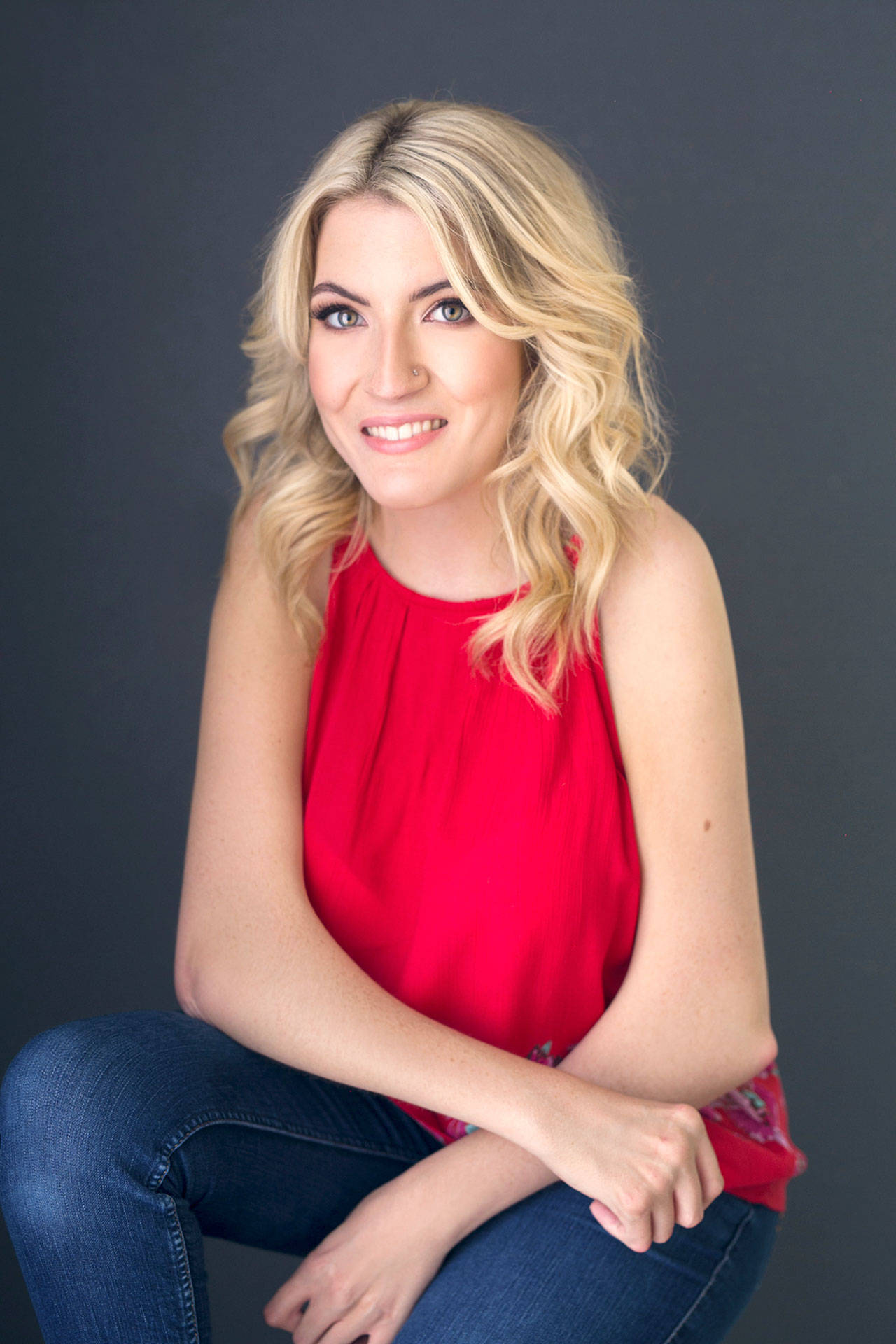PORT ANGELES — Perched on a piano bench, Madeline, 6, and Abigail, 12, stretched out their arms, examining their ivory-tickling fingers.
“Look at my hands,” Madeline said. “They’re crooked.”
“Your hands are crooked and beautiful,” Abigail replied.
“Do you think anyone will ever love me because I am crooked?”
“Yes,” Abigail said. “Because you are lovable.”
Their mother, Mary Irwin, looked on — heartbroken that little Maddy felt this way, she recalled.
Now 21, Madeline has come to love her “crooked” hands, an effect of arthrogryposis multiplex congenita. The name is derived from Greek, meaning “curving of joints.”
“It’s always been an inside joke in my family that I’m crooked. There was a time when I wasn’t super thrilled with that fact,” Madeline said. “Now, it’s probably my favorite thing about myself. It sounds like I’m just saying that, but I really can’t imagine myself without it. It doesn’t define me, but it’s a huge part of who I am.”
On Saturday night, Madeline will find herself in a private room, facing a panel of Miss Washington USA judges. She’ll explain why she’s vying for a crown to raise awareness of people with physical disabilities.
“This is going to make me cry,” she said, as she began.
“I grew up not knowing what I can do as a disabled person. I thought, ‘What am I going to do? How do I fit in society?’ I felt alone as a disabled person,” she said. “I want to raise awareness to the fact that disabled people need a bigger platform and better representation.”
New to pageantry, Madeline’s never donned a bikini or evening gown on stage. When asked about her weaknesses in an interview, she didn’t provide the standard responses: “braces” or “I’m not tall enough,” said Maureen Francisco, co-executive pageant producer.
Her reasons for competing “really put things into perspective,” Francisco said.
Madeline’s approaching the pageant aiming for a genuine quality above all.
“She’s been oddly calm about the whole process,” Irwin said, noting her impromptu decision to apply.
Home for winter break from Washington State University Vancouver, Madeline came down the stairs and told her mother, “Oh, by the way, I applied to be a contestant for Miss Washington. They said anyone and everyone could apply, and I thought, ‘Sure, we’ll see about that.’ They called right away, and I have an interview with the producer tonight.”
“Oh? How do you feel about that?”
“Fine. I doubt they’ll want me.”
They did.
Irwin listened in on the phone conversation that night.
“Why do you want to represent people with disabilities?” Francisco asked.
“I am a disabled person,” Madeline finally said. “And I want to represent them.”
Francisco accepted Madeline on the spot.
“I never realized she had a disability until she came out and told me,” Francisco said later.
Irwin said she was “hugely impressed” that the producers never asked for a photograph of Madeline before inviting her to compete.
“For me, that broke stereotypes about beauty pageants, about the swimsuits and the outward looks,” Irwin said. “They showed they were truly inclusive. It wasn’t what I expected.”
Madeline will compete Saturday and Sunday at Highline Performing Arts Center in Burien, 11 miles south of Seattle. The pageant includes three categories: interview, swimsuit and evening gown, all equally weighted.
If she were to become Miss Washington, Madeline would spend a year volunteering, appearing at events such as New York Fashion Week, speaking at schools and attending sports games, Francisco said.
“I told her people are going to be asking you lots and lots of questions,” Francisco said. “Are you ready for that?”
“Yes,” Madeline said.
“I want young women to be able to look up and see people say, ‘Yes I have ___, and I’m confident, and I love my body as it is.
“The world needs more people in positions of representation that exemplify that no matter what, it’s OK to be different. You can have it all and do what you want.”
For 14 years, Madeline felt ashamed of her arthrogryposis, she said.
She wore long-sleeved shirts in the summertime to cover her arms and avoided sports or activities that might call attention to her body.
Now, when Madeline mentions her arthrogryposis or scoliosis and people reply, “Oh, I’m sorry,” she says, “You don’t have to be sorry. I’m OK with being disabled.”
Others will say, “I didn’t see that you were disabled. I just saw that you were beautiful.”
But Madeline doesn’t wish to conceal her disability either.
“You can be disabled and beautiful,” she said.
Madeline’s Instagram and Twitter hashtags of choice include: #disabledandproud, #disabledandcute, #beautifullydisabled, #selflove and #selfacceptance.
Madeline still experiences “bad body days,” moments of self-doubt she feels are as equally important to document on social media as her moments of self-acceptance, she said.
But she wants people to know, “It will pass. You are beautiful and perfect the way you are. It’s OK to not be OK sometimes.”
In the past year or two, Madeline “got serious” about loving her body.
Now, she frequently posts “Body Positive” messages to her Instagram account, “crooked loves” — a phrase that pays homage to that day on the piano bench.
Her mother came up with the name.
“All of a sudden, my mind flashed back to the memory of my little girl, sitting with the piano, looking at her hands,” Irwin said.
It remains one of the family’s most “precious and poignant” memories — and a reminder of how far Madeline’s come in the way of loving her “crooked” hands.
________
Reporter Sarah Sharp can be reached at 360-452-2345, ext. 56650, or at ssharp@peninsuladailynews.com.

